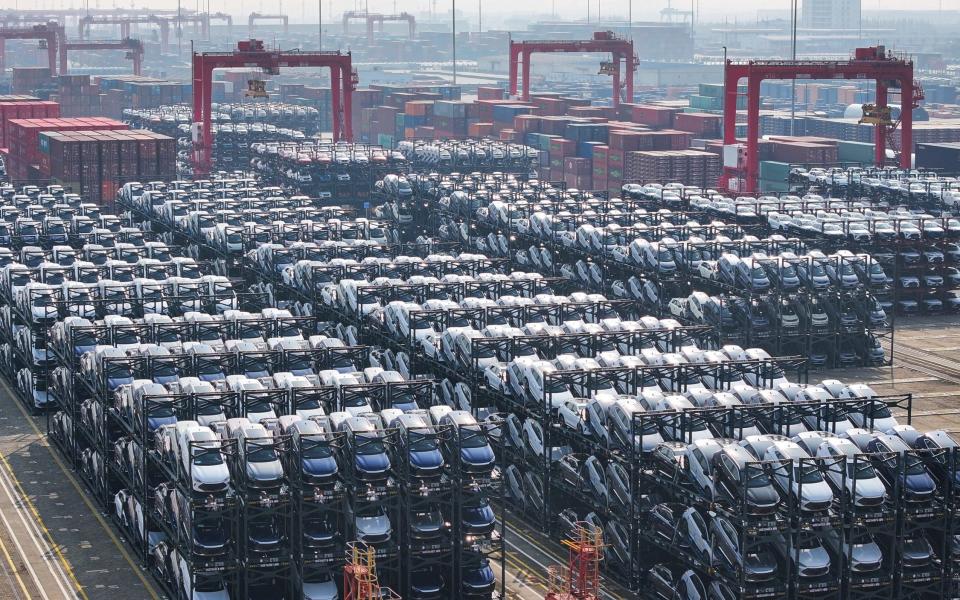China agrees to electric car tariff talks as EU fights to avoid trade war

The EU has clinched last-ditch talks with Beijing over plans to impose higher tariffs on Chinese imports of electric cars amid fears of a looming tit-for-tat trade war.
Trade ministers from China and the European Commission agreed to start negotiations to settle a dispute over EU plans to raise tariffs on electric vehicle imports from China to up to 48pc.
The EU proposal is part of an anti-subsidy crackdown against China but threatens tit-for-tat retaliation and the deepening of tensions between the two economies.
EU trade commissioner Valdis Dombrovskis and Chinese commerce minister Wang Wentao agreed to further talks after a “candid and constructive” telephone call, EU trade spokesman Olof Gill said.
The move came after Germany’s economic minister Robert Habeck concluded a three-day visit to Beijing. Mr Habeck, vice-chancellor in Chancellor Olaf Scholz’s coalition government, is the first major EU politician to visit China to seek a resolution.
Germany has the most to lose from the EU spat with China owing to its carmaking prowess.
The German automotive industry has been opposed to the EU plan amid fears China could impose counter-tariffs to hurt manufacturers such as BMW and Daimler.
The conciliatory tone suggests a de-escalation of tensions between the two sides, although Mr Habeck stressed it was early days.
“One has to be very careful now, this is a first step and many more will be necessary,” he said.
“But at least this is a first step that was not possible before. That’s why tonight is a good evening if we want to try to maintain a level playing field and avoid a tariff war.”
The EU has taken aim at China because of “unfair” state subsidies paid to Chinese car companies by the government.
EU foreign subsidy rules are designed to create a level playing field and ensure manufacturers from China do not gain a competitive advantage over European manufacturers.
US President Joe Biden has already hit Chinese EV imports with tariffs of 100pc, although Chinese cars are less common on US roads than EU countries.
China has attempted to drive a wedge between EU nations in retaliation for the EV tariffs, threatening industries that are important for particular EU states.
Last month it launched an anti-dumping investigation into pork belly, which is an important Spanish export. France has also been targeted with potential tariffs on brandy and cognac.
Diplomats from the EU and China are expected to meet in the next two weeks to discuss the subsidy clashes.
Mr Gill added: “The two sides agreed to engage on the basis of facts and in full respect of WTO rules.
“The EU side emphasised that any negotiated outcome to its investigation must be effective in addressing the injurious subsidisation. The two sides will continue to engage at all levels in the coming weeks.”

 Yahoo Finance
Yahoo Finance 